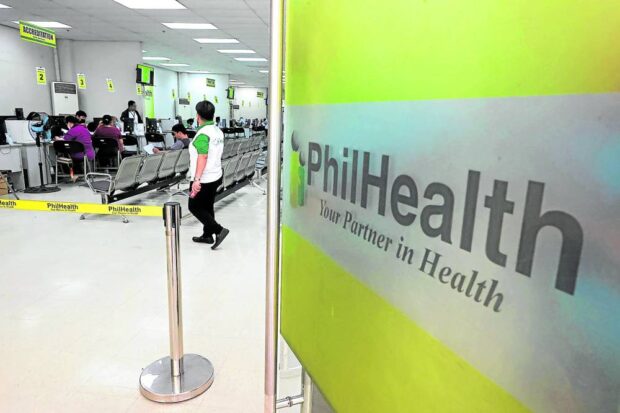Marcos studying cost, benefit of PhilHealth premium rate hike

INQUIRER FILE PHOTO / GRIG C. MONTEGRANDE
Malacañang on Friday clarified that President Marcos is still studying the suspension of the five-percent increase in premium rates of the Philippine Health Insurance Corp. (PhilHealth) that was implemented on Jan. 1.
Presidential Communications Office Secretary Cheloy Velicaria-Garafil said the President was still considering Health Secretary Teodoro Herbosa’s recommendation not to implement the hike.
“The review is still ongoing,” Garafil said in a message to reporters on Friday shortly after PhilHealth president Emmanuel Ledesma said the President did not object to the premium increase.
Garafil added: “The President wants to ensure that any increase in premium will substantially be much more in value in terms of benefits and coverage to PhilHealth members.”
Under Republic Act No. 11223, or the Universal Health Care Act, PhilHealth is mandated to raise members’ premiums by 0.5 percent every year starting 2019.
Article continues after this advertisementThe scheduled increases will end in 2025 when it reaches the second year of the 5-percent limit.
Article continues after this advertisementWhen the 5-percent premium took effect on Jan. 1, direct contributors were expected to pay the new premium rates ranging from P500 to P5,000, depending on the income level.
This means the income ceiling of members was raised from P90,000 to P100,000, while the income floor was retained at P10,000.
But Herbosa recommended that the President again defer the premium increase in consideration of the rising cost of living.
No bad effect
Herbosa, who serves as the ex officio chair of the board of directors of PhilHealth, noted that a delay in the premium hike would not significantly impact the state health insurer’s financial standing.
Ledesma conceded that a delay in the premium hike would not affect the health insurer’s finances, but he told Mr. Marcos that another delay would hamper the implementation of PhilHealth’s increased benefit packages.
“Our budget was cut by Congress by P40 billion at the last minute, and now we’re talking of another P35 billion that would have been lost if we freeze increasing the premium from 4 percent to 5 percent,” he said.
“But even if the President had suspended again the implementation of the hike, we will find a way to still move forward. We can manage, but because of the aggressiveness of our plan, that P35 billion (from increasing the members’ contribution) will be a big help for PhilHealth,” Ledesma explained.
PhilHealth has already pledged to increase benefit packages to lessen or fully eliminate out-of-pocket expenses of its members. It is also studying temporarily suspending premium contributions for all minimum wage earners.
According to Ledesma, this year’s increase in contribution would be the final hike under the law, and they would not propose for any further raise in the premium of PhilHealth members in the coming years.